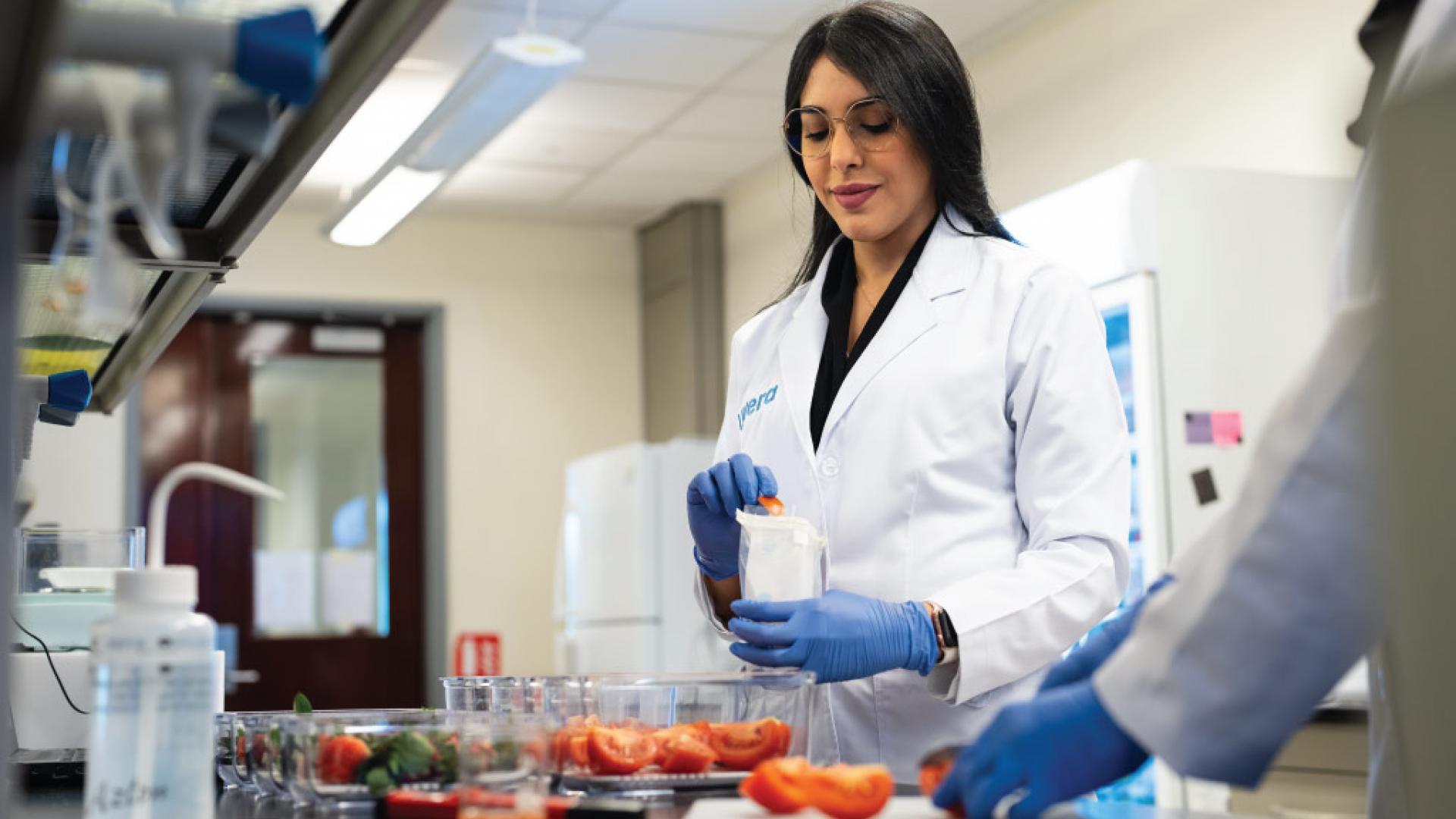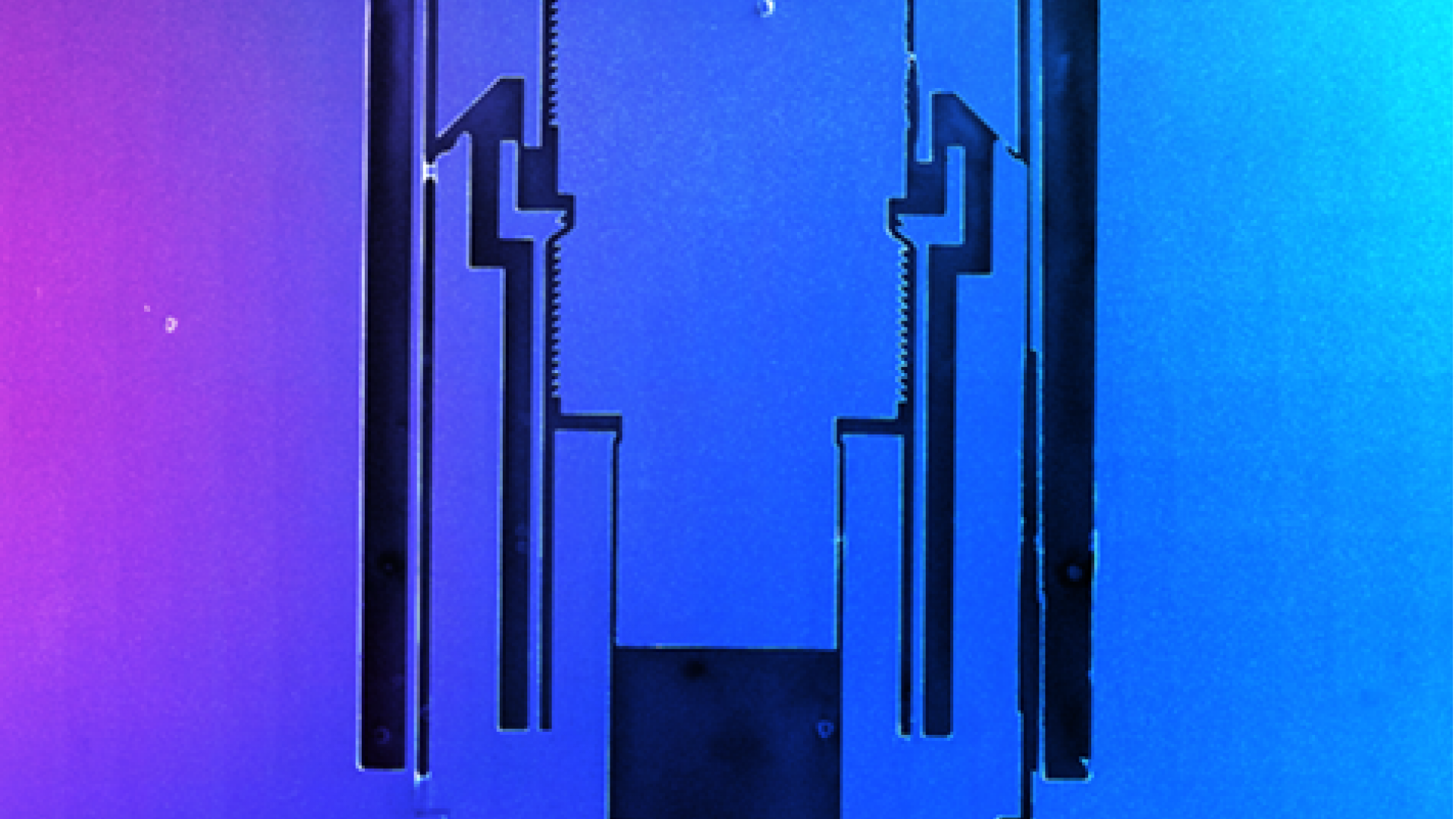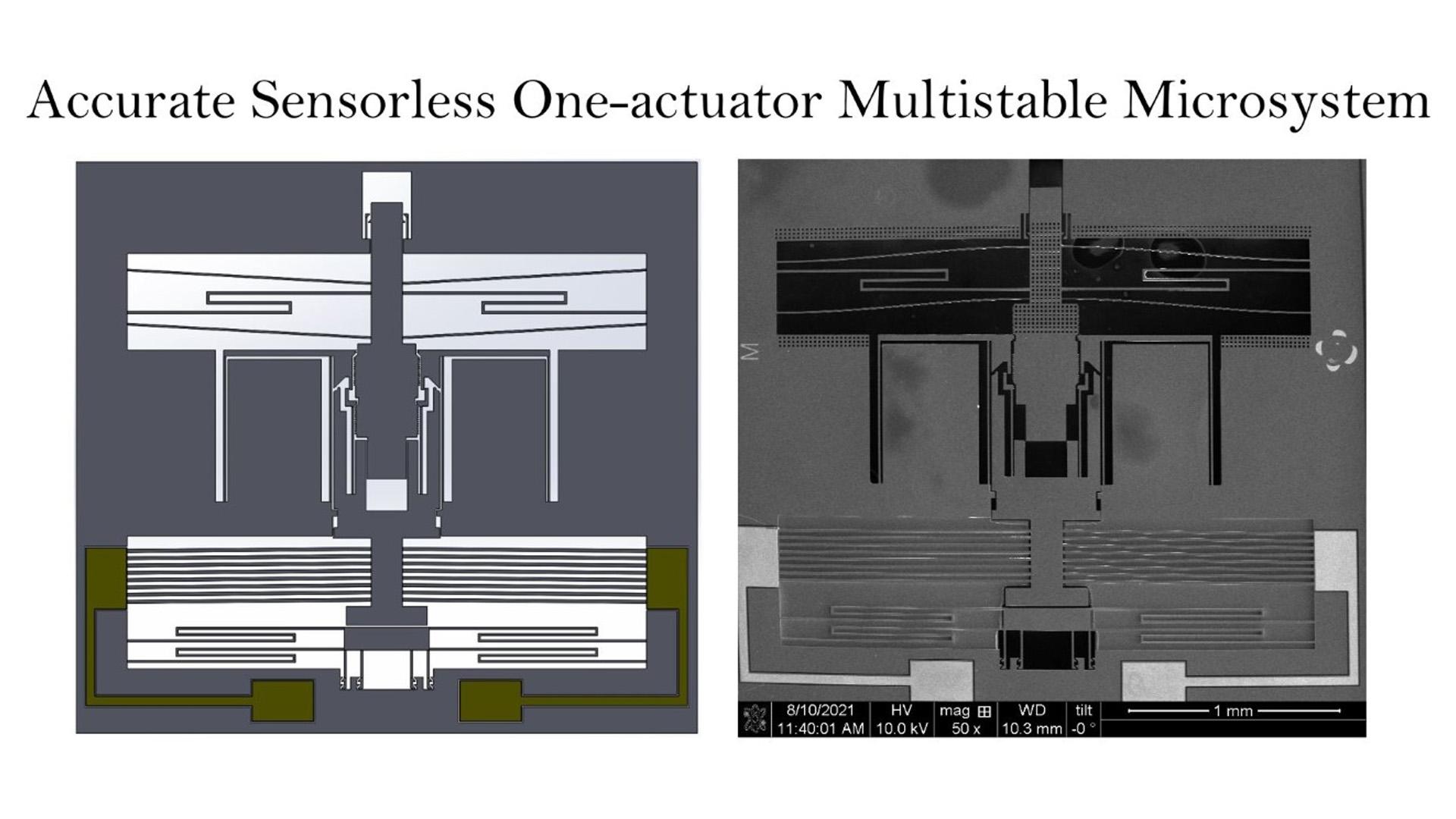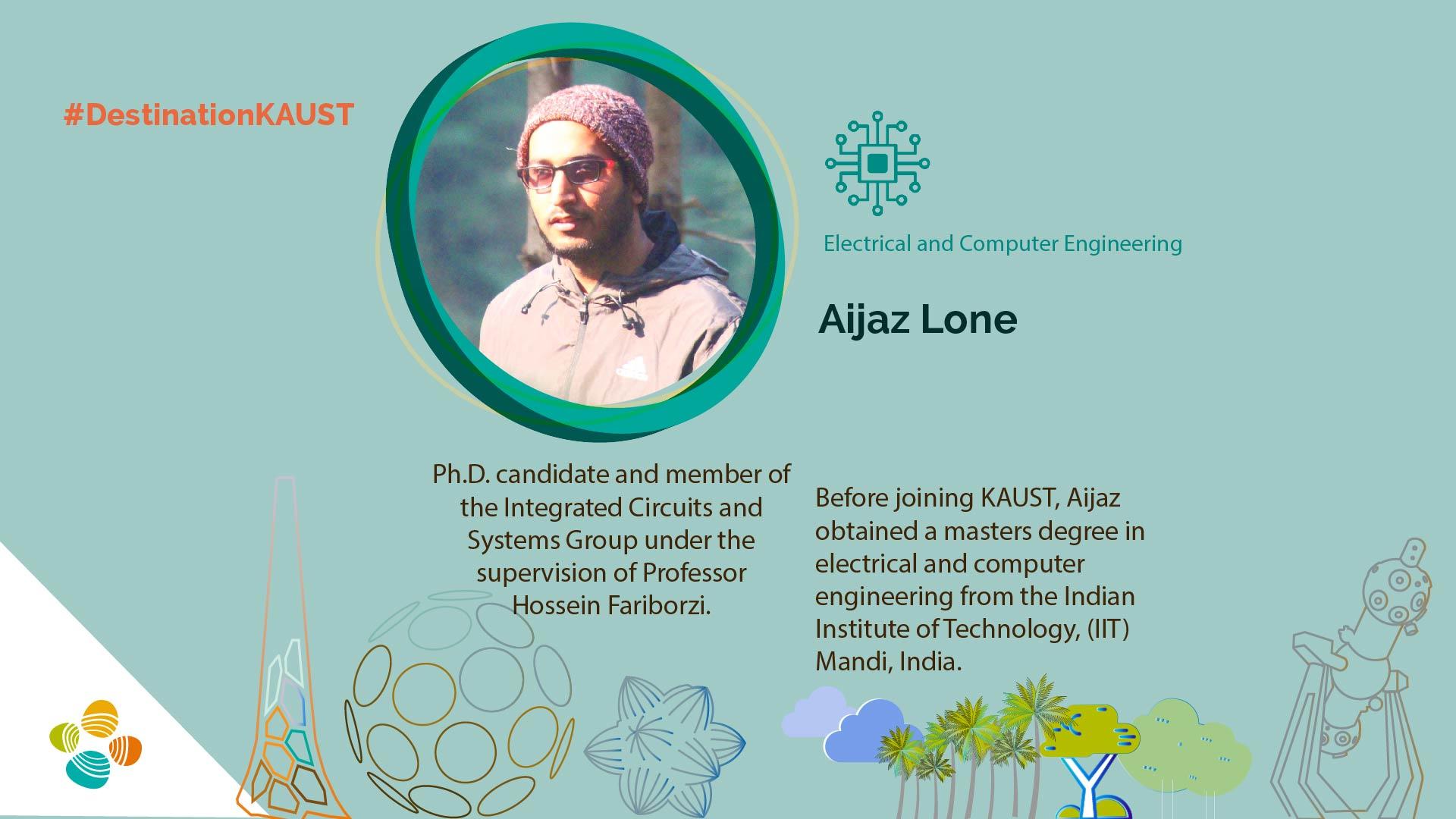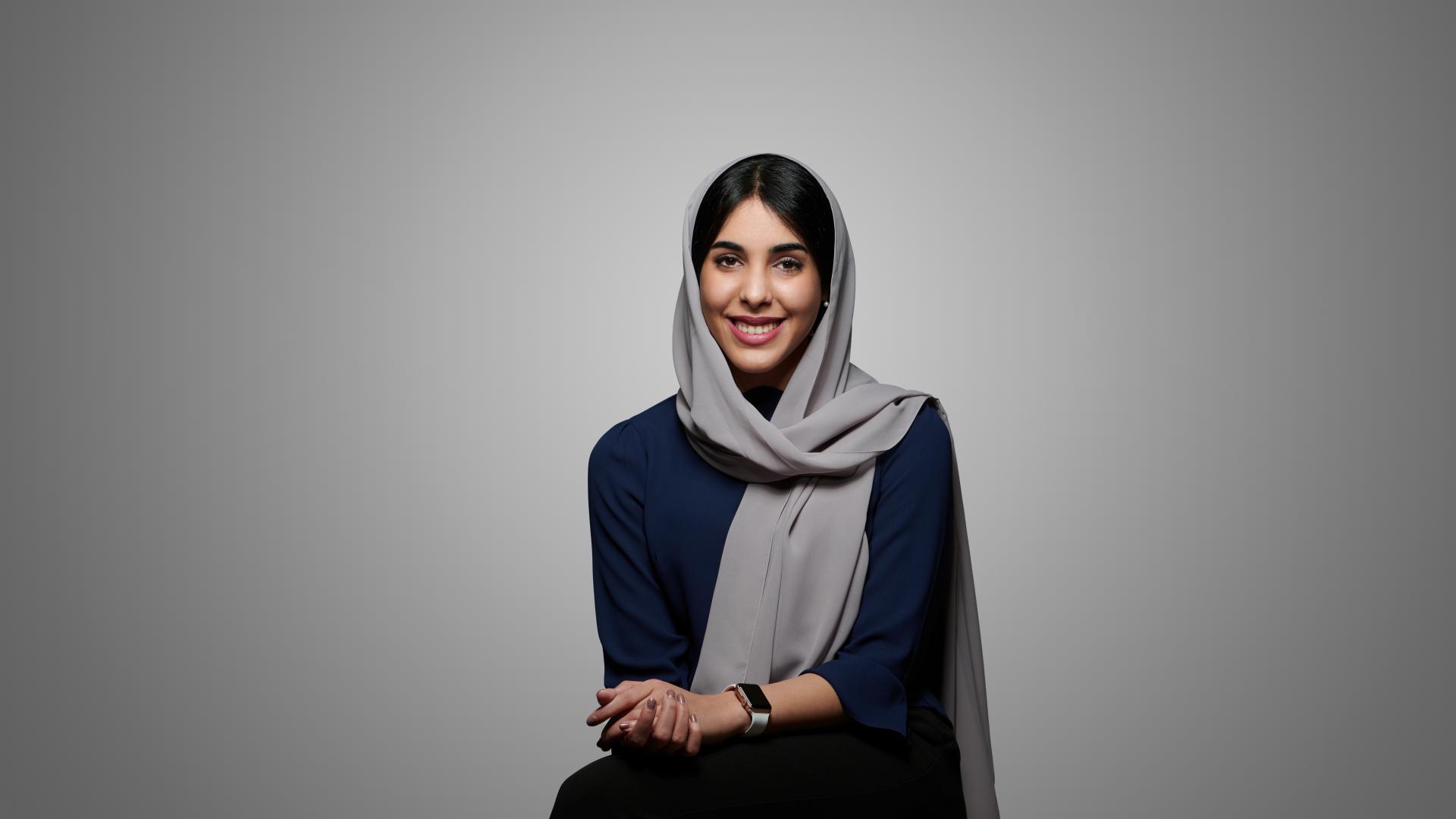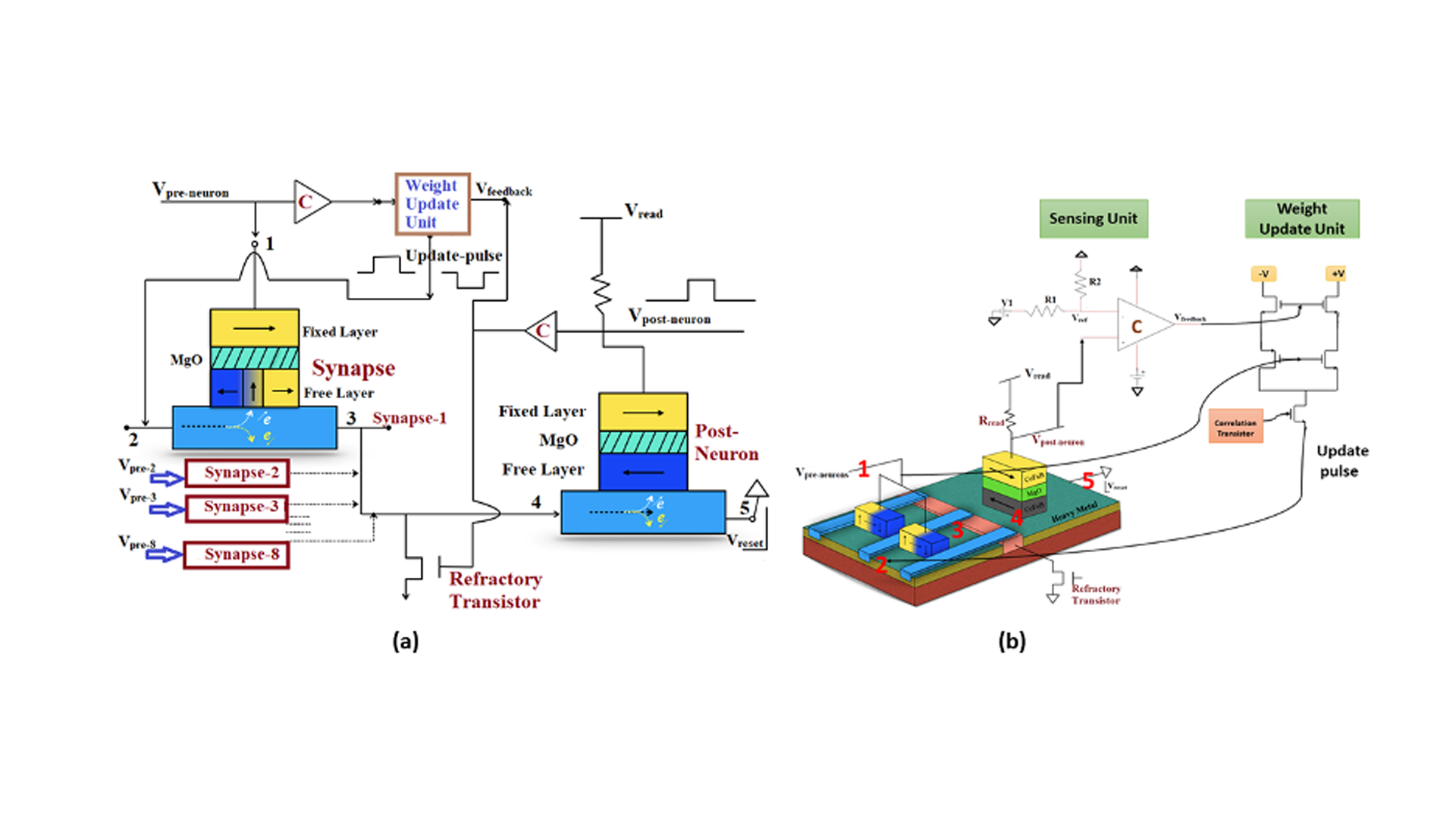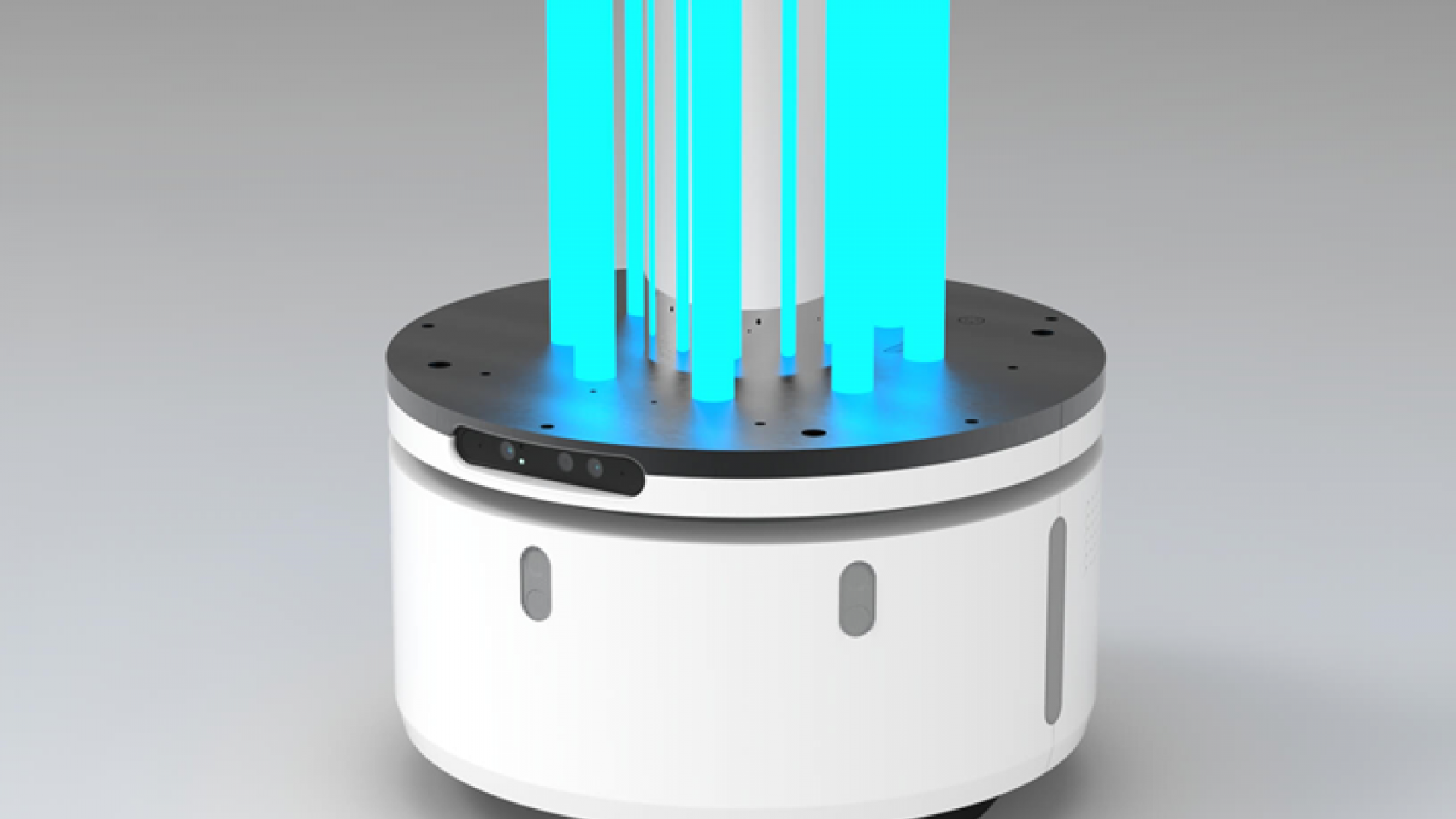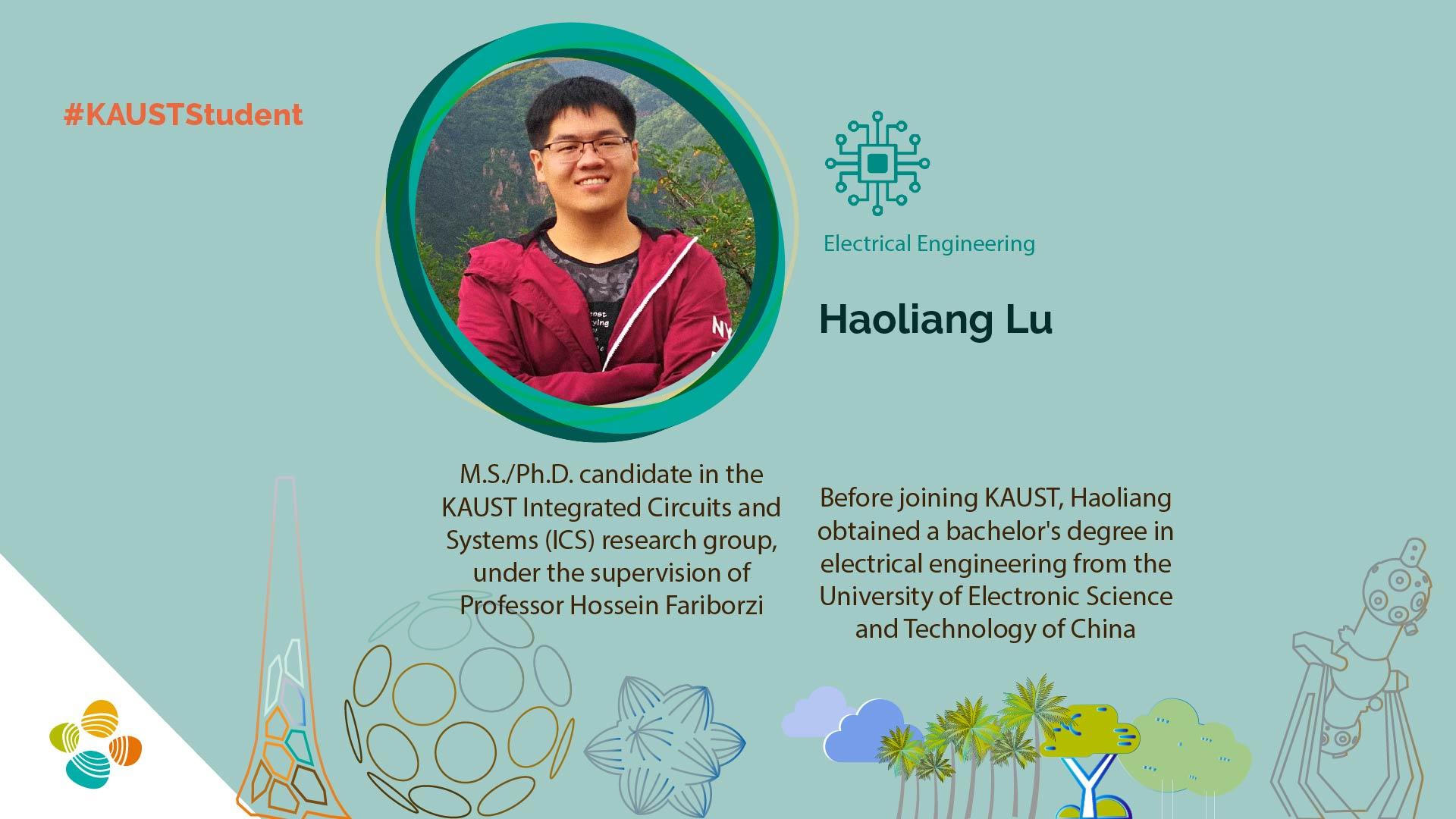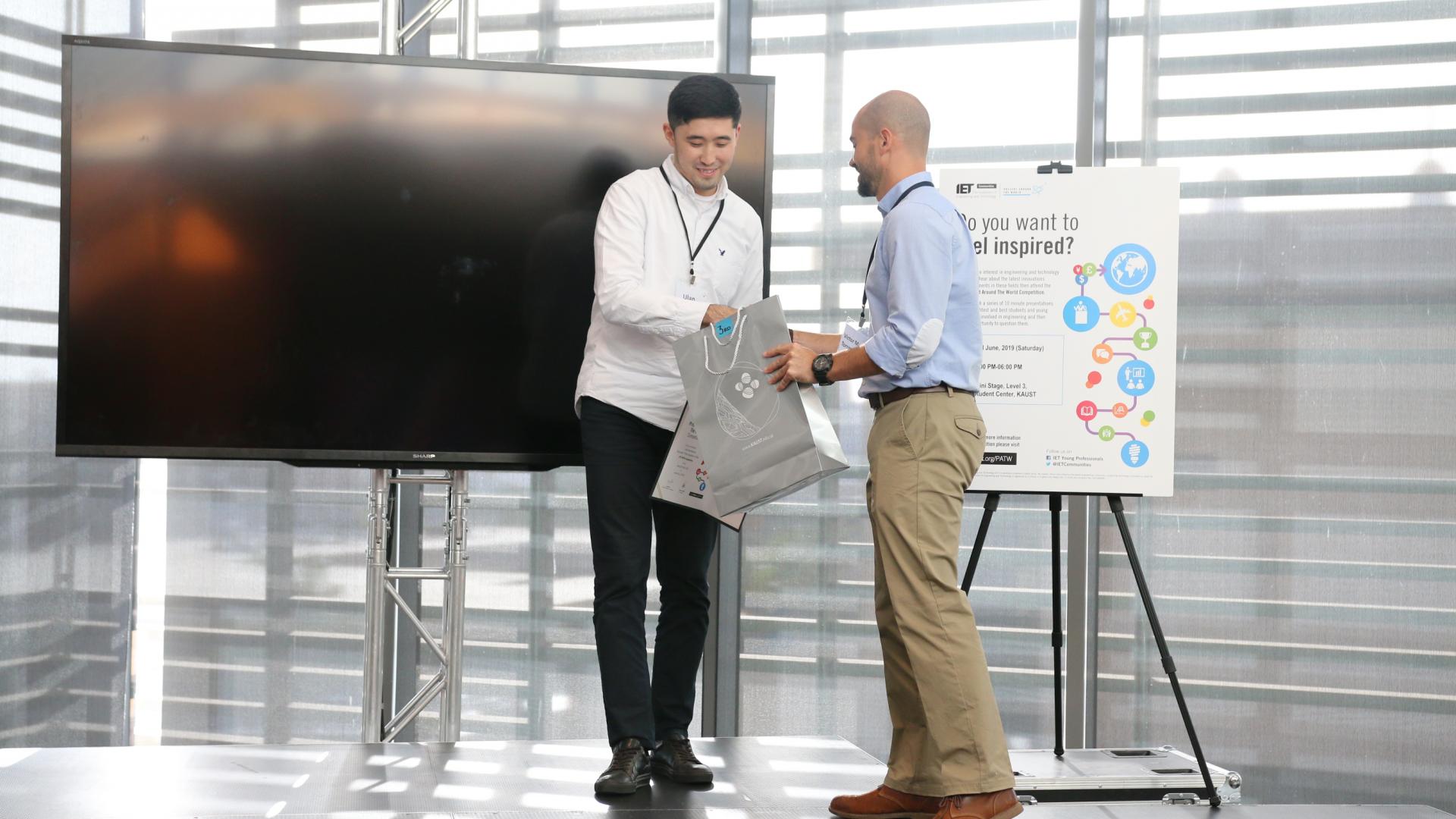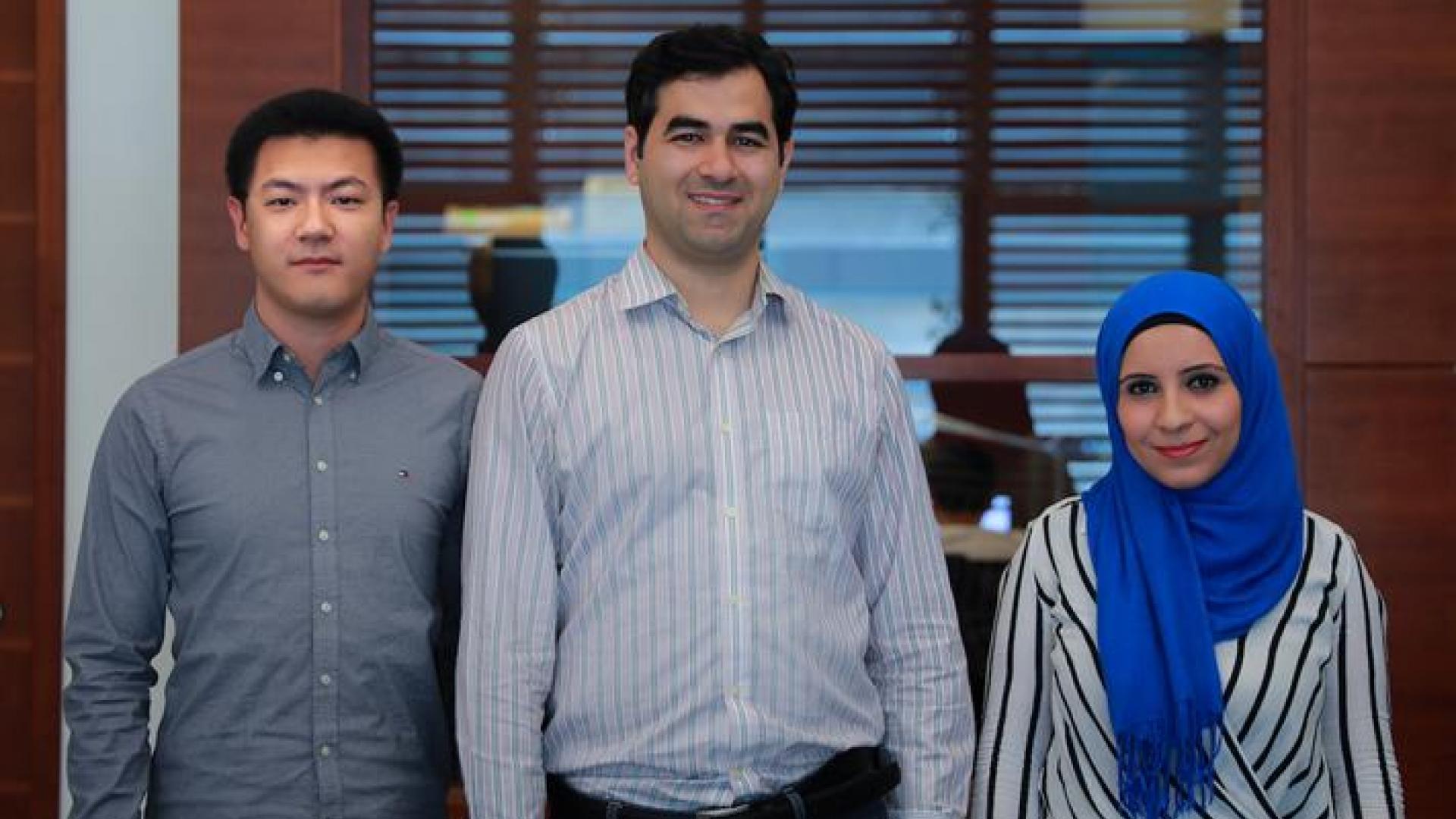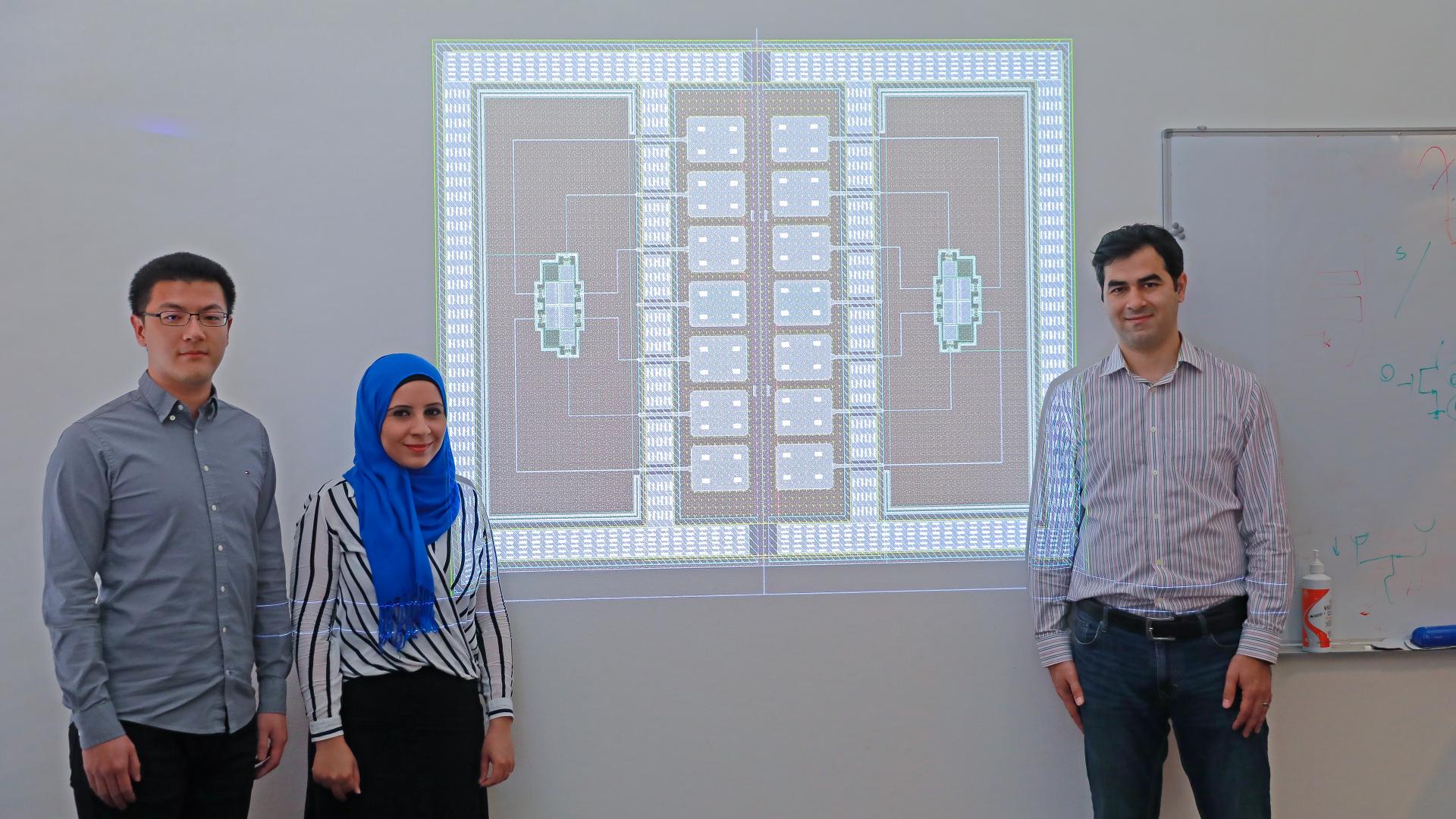Combining UV sterilization with vacuum sealing significantly extends the shelf-life of a variety of foods.
Hossein Fariborzi's team has developed a novel miniature microelectromechanical device that avoids the need to use sensors and has significant potential for use in industrial or medical applications.
A compact and monolithic multistable microsystem was developed to realize the accurate positioning on the microscale by using a single actuator, without any positioning sensors (doi: 10.3389/fmech.2022.825470).
Asrar Damdam, a Ph.d. student based in the KAUST Integrated Circuits and Systems Group (ICS), was recently named amongst the "Forbes Middle East" 30 Under 30 list of innovators for 2021.
Aijaz Lone is a M.S. graduate in electrical and computer engineering from the Indian Institute of Technology (IIT), India. Lone first came to KAUST as a visiting student in 2020 and was instantly impressed by the facilities he encountered. It was these very facilities that piqued his interest in joining the University as a Ph.D. student to pursue his research career.
KAUST Ph.D. student Asrar Damdam has been selected as one of the six winners of the 7th L’Oréal-UNESCO For Women in Science Middle East Regional Young Talents Program. Damdam received the prestigious award for her design and fabrication of a reconfigurable silicon-based electronic platform specifically designed for a heart-assistive device. The platform was designed to comply with the heart’s shape and its rhythmic expansions and contractions during the cardiac cycle.
C5-08: Spike Time Dependent Plasticity Based Spin-Neuromorphic Computing for Pattern Recognition Application. A. Lone, S. Amara and H. Fariborzi.
The COVID-19 pandemic has activated vital innovation and R&D initiatives to tackle the crippling effects, health ramifications, and overall impact of the coronavirus on global societies and economies. In recent months, the King Abdulaziz City for Science and Technology (KACST), based in Riyadh, Saudi Arabia, launched a COVID-19-themed virtual accelerator aimed at supporting talented innovators, aspiring entrepreneurs, and innovative small companies dedicated to finding solutions to mitigate the spread of the virus through protection, prevention, tracking/detection, and treatment solutions.
Haoliang Lu, 22, is an electrical engineering graduate who will join KAUST from the University of Electronic Science and Technology, China. Haoliang will join KAUST in the fall of 2020 as a M.S./Ph.D. candidate, and member of the Integrated Circuits and Systems (ICS) research group, under the supervision of Professor Hossein Fariborzi.
IET (Institute of Engineering and Technology) Present Around The World (PATW) Competition is a global competition for Young Professionals and Students within engineering to develop and showcase their presentation skills.
ICS team made of Ulan Myrzakhan, Meshal Alawein (Ph.D. students), Selma Amara (postdoc) and Abdulmohsen Alsaui (visiting student) won the Future Generation Competition Judge’s Choice Award & People’s Choice Award.
The ICS circuits team won the Best Ph.D. Forum Award in MWSCAS Symposium 2018.
The city of the future will be innervated with millions of microscopic sensors. These sensors will need to be virtually invisible, extremely low power and, conversely, extremely powerful from a computing perspective. A team at KAUST is chasing this impossible list of requirements in the form of miniaturized mechanical structures or MEMS.
The ICS team made of Ph.D. students Sally Ahmed, Ren Li and Visiting Student Xuecui Zou under the supervision of Prof. Fariborzi, won the second place of first Cadence/X-FAB/Coventor MEMS design contest 2018, after a 15 months period of participation.
ICS team made of Ph.D. students Sally Ahmed (MEMS Design Contest Interview with Sally Ahmed), Ren Li and Visiting Student Xuecui Zou under the supervision of Prof.
